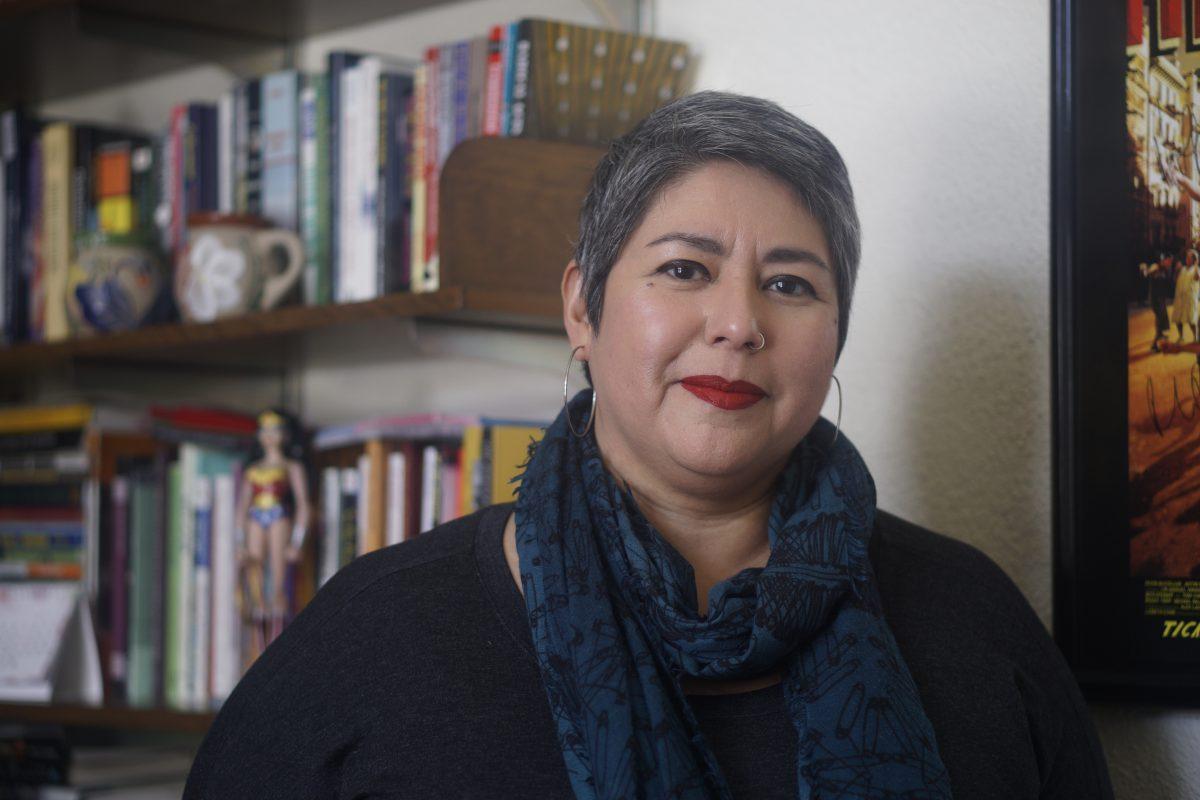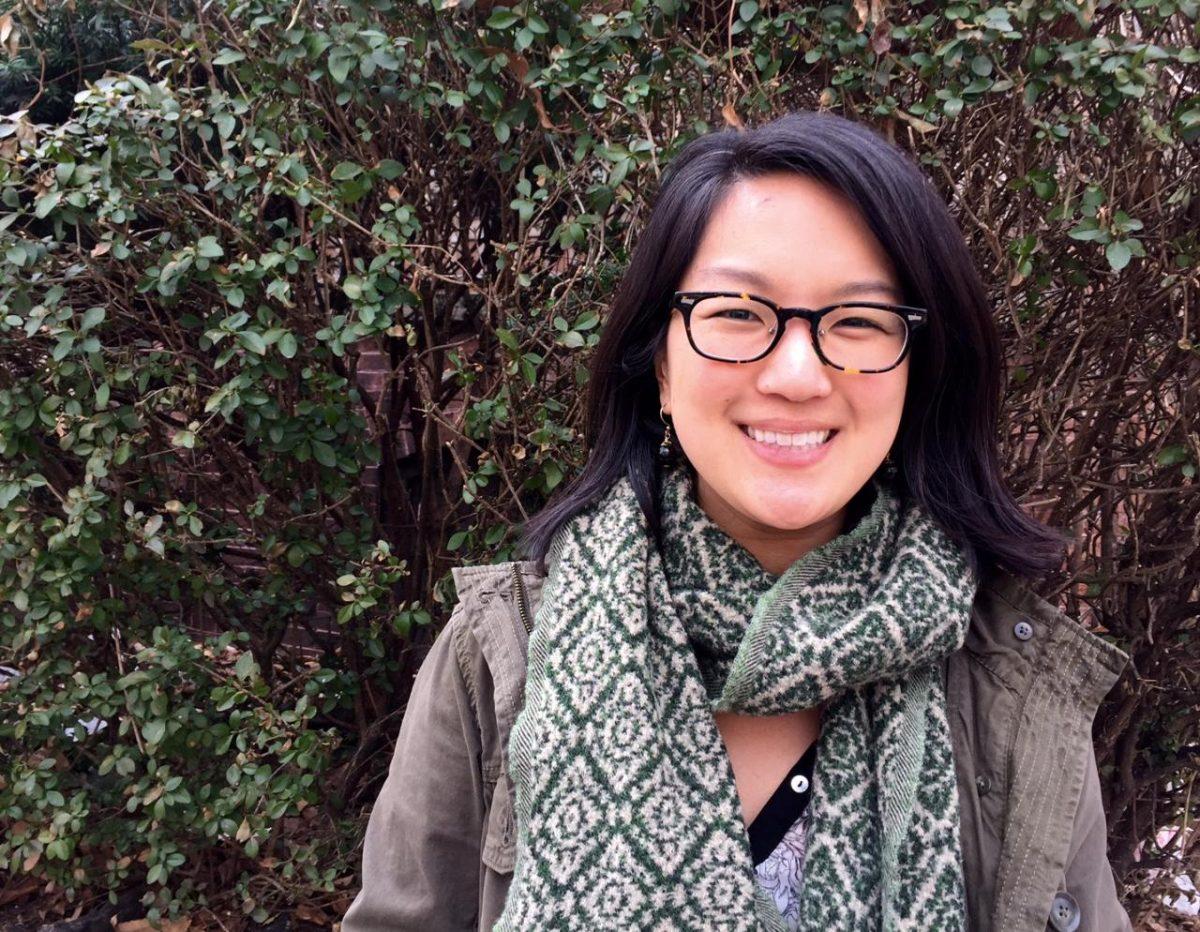As a member of the women’s and gender studies (WGST) department at Wellesley, Associate Professor Irene Mata brings her background in Chicanx and Latinx literature to the table, enriching the interdisciplinary nature of the major. She has always been passionate about literature, but as a young woman she also began questioning the role of gender in the way that people made decisions and behaved. When Mata was an undergraduate at New Mexico State University (NMSU), she originally planned on majoring exclusively in English. However, after taking a women’s studies class, she felt that her eyes had opened to a new realm of possibilities.
“I think I was trying to figure out why women, especially the young women around me, made the choices that they were making. I kind of stumbled into a women’s studies course…It made me say, ‘Oh, I understand,’” Mata said. “It was really important in introducing me into thinking critically about structures, critically about roles that we are conditioned or taught to perform.”
Mata ended up majoring in both English and women’s studies as an undergraduate. After considering the possibility of law school, she ultimately decided to stick with literature after getting her master’s in English at NMSU.
“I knew by this point I was very much a feminist scholar, I was very much committed to gender equity and fighting for the rights of women, but I think what my master’s program did is that it allowed me the opportunity, for the first time, to work with a woman-ofcolor professor,” she said. “Working with this womanof-color professor taught me about intersectionality and other structures of oppression.”
Pursuing her passion, Mata later obtained a doctoral degree in literature from the University of California, San Diego (UCSD), where she was also a teaching assistant. Though her degrees are heavily focused in literature, she has been especially drawn to the narratives of women ever since taking her first women’s studies class.
“I ended up taking a bunch of courses that centered on the stories of women. It made me want to incorporate the study of women into an English degree,” Mata said. “It also made me question how women were represented in literature by men.”
As a teaching assistant during her time at UCSD, Mata fell in love with having discussions in the classroom with her students. After she had studied for six years at UCSD, her best friend sent her the job description of an opening in Wellesley’s WGST department.
“She knew how much I loved literature, but she also knew that my heart was in women’s and gender studies. And so I came out here, gave a job talk, fell in love with the department and fell in love with the students,” Mata said.
Mata has been a faculty member since 2007. She currently teaches the intro to women’s and gender studies course, in addition to four classes in the department ranging from popular culture to theater, all of which focus on Chicanx and Latinx representation. This year, she is also teaching a first-year seminar on representation of difference in children’s media.
Teaching at a women’s college like Wellesley has been a very different experience for Mata than being a teaching assistant at UCSD. Not only does she always feel confident that Wellesley students have come prepared to class and can engage meaningfully with the texts, but she also finds that students begin with a more advanced understanding of gender equality compared to the students she has previously taught.
“I think even where we start the conversation here is different. The conversation we can have is much more complex; it can be much more intersectional than if you’re starting off just trying to explain to people that gender equity is something we should all want,” Mata said.
Like the discussions she has in class, Mata’s research focuses on the intersectional aspects of women’s and gender studies. Apart from sexism, many women are faced with additional sources of oppression.
“My research is very much invested in interrogating how Chicana and Latina bodies are represented in mainstream media,” she said.
Mata’s first book, which she published in 2014, is called “Domestic Disturbances: Re-Imagining Narratives of Gender, Labor, and Immigration,” and it emphasizes the stories of immigrants.
“My first book was [about] how the immigrant narrative has been used by current Chicana and Latina writers to complicate what it means to be an immigrant subject and to complicate how immigrant women are represented,” said Mata.
She is currently working on another book which will examine the role of art, literature and cultural productions in social movements. She plans to study the immigrant rights movement and the ways in which it became more inclusive, building off the queer rights movements.
“It’s creating these new ways of thinking about activism that is inclusive of queerness, inclusive of being undocumented, inclusive of women, inclusive of men and that doesn’t exclude different members,” Mata explained.
Mata said that if she had joined an English department, her books would have turned out very differently. Through working in an interdisciplinary setting, she is able to combine several perspectives, taking into account literature, art, theater and the experiences of immigrants.
WGST professors at Wellesley come from a diverse array of academic backgrounds. These backgrounds include sociology, consciousness, health and bioethics. In fact, only one professor in the department, Professor Musto, actually has a PhD in women’s and gender studies.
“All of us do very different work. What makes our department function really well is that we bring our disciplinary frameworks into this interdisciplinary space, so that we can have conversations around specific issues from all these different viewpoints…and the department supports that,” Mata said. “At the end of the day, I’m a literary scholar. So I love it.”









